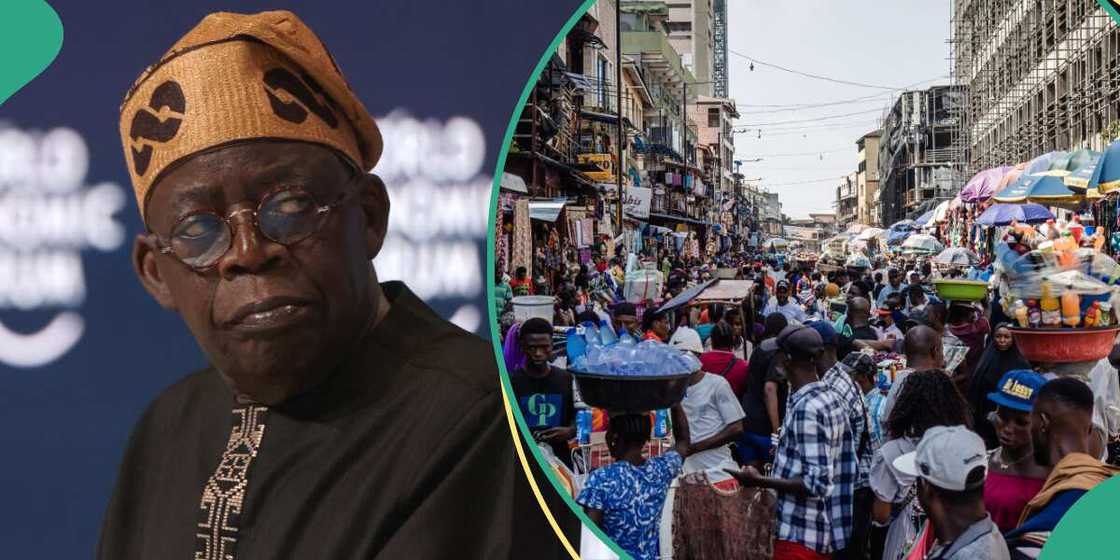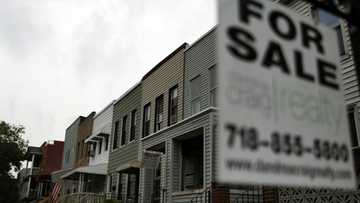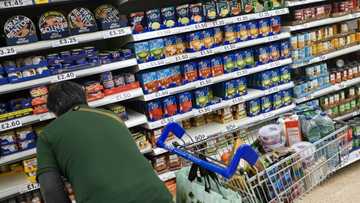NBS report names Kogi, 9 others as most expensive states to live in Nigeria
- The NBS has released new data showing once again how difficult it is for Nigerians to survive each month
- The data shows that among 33 states, residents of 10 states, led by Kogi, experienced the highest inflation rates
- The Central Bank of Nigeria will have to fashion out the right monetary polices to help tackle the rising inflation
PAY ATTENTION: The 2024 Business Leaders Awards Present Entrepreneurs that Change Nigeria for the Better. Check out their Stories!
Legit.ng journalist Dave Ibemere has over a decade of business journalism experience with in-depth knowledge of the Nigerian economy, stocks, and general market trends.
A new report by the Nigerian Bureau of Statistics (NBS) has identified the ten most expensive states to live in Nigeria based on inflation.
In its consumer price index report, the NBS said the headline inflation rate, which measures the price changes of goods and services in the country, rose to 33.69%.

Source: Getty Images
April 2024 inflation rate is a 11.47% points higher compared to the rate recorded in April 2023, which was 22.22%.
Also, when compared on a month-on-month basis, the April 2024 inflation rate showed an increase of 0.49 percentage points compared to the March 2024 headline inflation rate of 33.20%.
The impact of inflation rate changes
A Lagos-based economist, John Ekeh, explained that the latest inflation rate shows how stressed Nigerians are in their daily lives.
He added:
"The inflation rate movement doesn't look like it will stop anytime soon due to the performance of the Nigerian currency in the foreign exchange market and the long wait for working local refineries to help bring down fuel prices, among other factors.
"The CBN has consistently promised to fight inflation by raising interest rates. All eyes will once again be on the CBN's monetary policy meeting set to be held on May 20 and 21, 2024.
"In my opinion, the apex bank will once again choose to raise interest rates, which will be a greater headache for businesses, especially small businesses looking for funds. Higher interest rates mean higher borrowing costs."
Top 10 states most expensive states to live in Nigeria.
Here are the top 10 most expensive states to live in as a Nigerian based on the inflation rate for April 2024.
Kogi ( 40.8%)
Residents of Kogi have been severely impacted over the past few months by escalating prices for goods and food.
Kogi recorded the highest all-item inflation rate in the country, reaching 40.84% in April 2024, up from 39.95% in March 2024. The food inflation rate also remains notably high, rising slightly from 48.47% in March to 48.62% in April.
These figures indicate persistent inflationary pressures in Kogi, largely driven by soaring food prices, making it the most expensive state to live in Nigeria as of April 2024.
Bauchi (39.9%)
Maintaining its position as the second highest on the list, Bauchi experienced a significant rise in the all-item inflation rate, increasing from 38.34% in March 2024 to 39.91% in April 2024. Interestingly, the food inflation rate slightly decreased from 34.38% in March to 33.85% in April.
This suggests that while general price levels have risen, the pressure from food prices has slightly eased, indicating that other non-food items are contributing more to the overall inflation in Bauchi.
Oyo ( 38.4%)
From its fourth position in March 2024, Oyo State moved up to third place in April 2024. Oyo’s all-item inflation rate increased from 37.30% in March to 38.37% in April, indicating growing economic strain.
The food inflation rate also rose, from 41.83% in March to 43.53% in April. This highlights the impact of rising food costs on overall inflation in Oyo, underscoring the significant role of food prices in driving up the cost of living.

Read also
"My prayer was for the MPC to pause the rate hikes" Expert reacts to CBN's new interest rate
Ondo (38.1%)
After holding the ninth position for consecutive months, Ondo made a significant leap forward, recording a substantial increase in the all-item inflation rate, which rose from 35.81% in March 2024 to 38.12% in April 2024.
The food inflation rate also saw a notable jump, from 43.45% in March to 45.87% in April. These rising inflation rates reflect increasing living costs in Ondo, with food prices playing a crucial role in driving overall inflation.
Rivers (37.6%)
Maintaining the fifth spot on the list for the third consecutive time, Rivers State shows a marginal increase in the all-item inflation rate, rising from 37.20% in March 2024 to 37.64% in April 2024. The food inflation rate, however, slightly decreased from 45.08% in March to 44.50% in April.
This indicates some relief in food costs, but food prices still play a significant role in the overall inflation scenario, contributing to the economic challenges faced by Rivers residents.
Other states are:
- Kwara 37.5%
- Jigawa 37.3%
- Osun 37.2%
- Lagos 37.2%
- Abia 36.5%
Rice sellers announce price changes
Legit.ng earlier reported that the price of parboiled rice dropped for the first time this year in April, which relieved families and reduced living standards across the country.
A market survey across Lagos and significant cities shows that in four months, the price of a 50kg bag of rice has decreased by 20%, from an average of N90,000 to N72,000.
Experts have attributed the staple's price drop to the rise in the value of the naira against the US dollar.
PAY ATTENTION: Donate to Legit Charity on Patreon. Your support matters!
Source: Legit.ng





